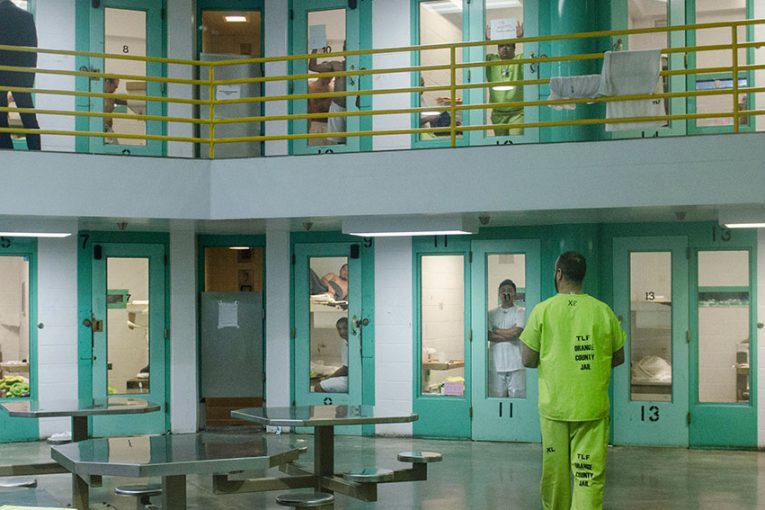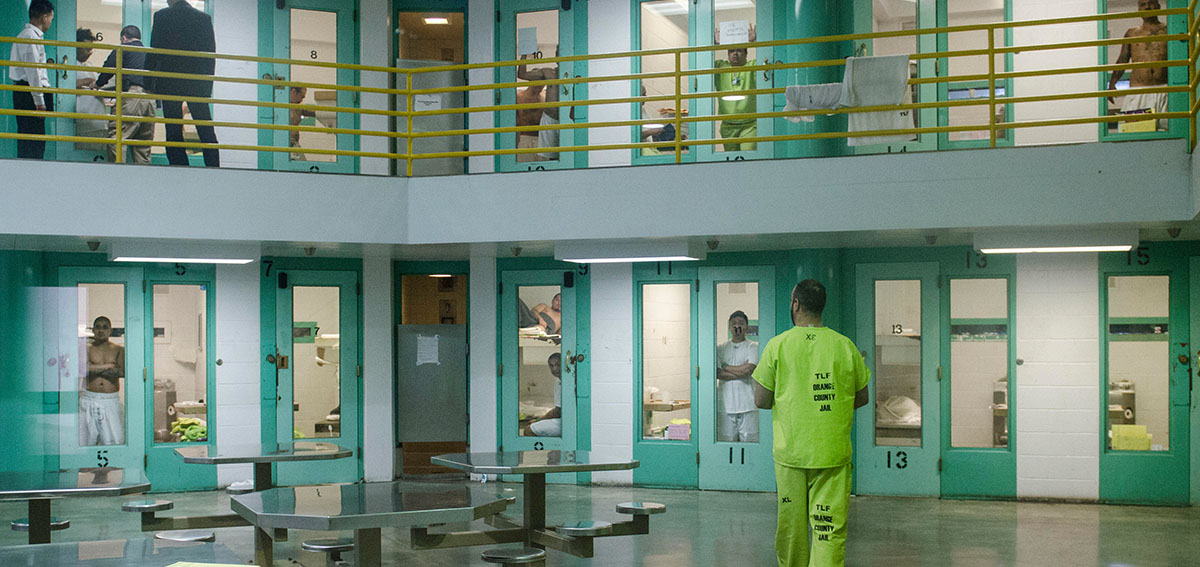

Earlier this week, the US Supreme Court in a 5-4 unsigned opinion sided with Orange County Jail officials over incarcerated people impacted by COVID-19 in a suit filed by the ACLU.
The four dissents were by the liberal wing of the court—Justice Sonia Sotomayor, joined by Justice Ruth Bader Ginsburg, filed an eight-page dissent accusing the majority of failing to safeguard the health of thousands of detainees.
“The district court’s injunction,” the officials told the justices, “seizes the role of administration of the jail, prevents nimble responses to the virus in an ever-changing landscape and puts focus on compliance with the order and avoiding contempt, rather than squarely on combating the contagion.”
In late April, a class action suit was filed by the ACLU and the law firm Covington & Burling seeking to force Sheriff Don Barnes and Orange County to take urgent steps to remedy conditions in the jail during the pandemic.
In their filings, the ACLU noted that the district court had found compliance with CDC Guidelines to be “piecemeal and inadequate.”
The ACLU in their filings described appalling conditions, in defiance with CDC Guidelines, “leaving detainees packed into dayrooms sharing the same air and bathrooms without social distancing; symptomatic individuals were not being separated from asymptomatic ones, and at least one COVID-positive detainee was housed with individuals who had not tested positive; applicants provided
 watered-down disinfectant and make-shift masks made from blood-stained sheets; and symptomatic detainees were being denied tests.”
watered-down disinfectant and make-shift masks made from blood-stained sheets; and symptomatic detainees were being denied tests.”
It is not surprising then that 369 detainees had tested positive as of the time of the preliminary injunction, reflecting “an increase of more than 300 confirmed cases in a little over a month.”
In their dissent, Justice Sotomayor said the officials had misled Judge Bernal. “The jail claimed that it had already achieved proper social distancing, provided inmates enough soap for frequent hand washing, and isolated and tested all symptomatic individuals,” she wrote, adding that sworn statements from dozens of detainees told a different story.
“Inmates described being transported back and forth to the jail in crammed buses, socializing in day rooms with no space to distance physically, lining up next to each other to wait for the phone, sleeping in bunk beds two to three feet apart, and even being ordered to stand closer than six feet apart when inmates tried to socially distance,” Justice Sotomayor wrote.
“This court normally does not reward bad behavior,” she wrote, referring to the officials’ litigation tactics.
“The district court found that, despite knowing the severe threat posed by Covid-19 and contrary to its own apparent policies, the jail exposed its inmates to significant risks from a highly contagious and potentially deadly disease,” she wrote. “Yet this court now intervenes, leaving to its own devices a jail that has misrepresented its actions to the district court and failed to safeguard the health of the inmates in its care.”
“The Orange County Sheriff’s Department has repeatedly failed its obligation to protect the safety of people in its custody,” said Jacob Reisberg, jails conditions advocate at the ACLU SoCal. “Under normal circumstances, this lack of care is shameful, but during COVID-19 it is catastrophic.”
The people in the most immediate danger are those with underlying medical conditions and disabilities. The lawsuit points out that the county has compiled a list of more than 500 medically vulnerable and disabled people in the jails, but not released the people on this list.
Several of those people are named plaintiffs in the class action lawsuit. Among them are:
Don Wagner, 68, a cancer survivor who is especially vulnerable when he goes to the in-jail medical station to have his blood pressure and thyroid levels monitored. To clean himself, he is issued only a small bar of soap per week and he has no funds to buy more.
Cynthia Campbell, 64, who is immuno-compromised due to rheumatoid arthritis. Yet she is forced into situations, including when she goes for treatments, where she is not able to keep a six-foot social distance.
Another group at high risk are nursing mothers. Melissa Ahlman, 32, is housed in the Central Women’s Jail in Santa Ana. Multiple times per day, and she pumps milk for her seven-month-old baby. After each pumping session, she must wait in crowded areas alongside sick people seeking medical treatment to deliver the milk to nurses.
“I wonder what will happen if I get sick and it spreads to my baby through my milk,” Ahlman said. “And I worry that I will get sick in here and not be able to come home to her.”
Cassandra Stubbs, director of the ACLU’s Capital Punishment Project, said, “The Orange County Jail has become a breeding ground for the spread of COVID-19, with more than a hundred confirmed cases and rising. The only way to mitigate this disaster, save lives, and flatten the curve, is to release many more people. We urge the court to do so.”
Orange County officials were pleased with the ruling, believing that they had “largely implemented to the extent possible CDC Guidelines.”
“The sheriff is pleased with the ruling,” Sheriff Barnes’ spokeswoman, Carrie Braun, told media on Wednesday.
“Prior to the lawsuit and the judge’s ruling, we had implemented a significant amount of measures to safeguard the inmates in our custody that have COVID and we will continue to do so,” Braun said.
“I am very pleased that the United States Supreme Court granted the Sheriff’s request for an emergency stay of the District Court’s preliminary injunction,” said Leon Page, the county’s top attorney, in a statement to media.
“This kind of Supreme Court intervention does not happen very often, but the Sheriff has done an outstanding job reducing the transmission of COVID-19 in the jail and absolutely deserves this relief from the Supreme Court.“
“We are disappointed with the Supreme Court’s decision to grant a stay while this case is pending on appeal. The district court had ordered reasonable, limited preventative measures to reduce the spread of COVID-19,” said Carl Takei, a senior staff attorney with the ACLU, in a statement.
“The Supreme Court’s decision to stay the court’s order comes at a time when COVID is spiking around the country, in Orange County, and in the Orange County Jail. Those in custody face enormous risk. And while Orange County officials had argued to the Supreme Court that there is no longer any threat from COVID infections from transmission within the jail, this – like other representations defendants previously made to the district court – is false.”
—David M. Greenwald reporting
To sign up for our new newsletter – Everyday Injustice – https://tinyurl.com/yyultcf9






